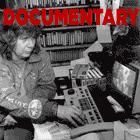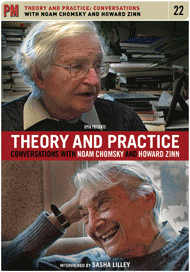From an interview on Buy Nothing Day (and a quote)
The day after Thanksgiving, the busiest shopping day of the year, is fast becoming known as a day of protest.
A growing subculture of activists now proclaims the date Buy Nothing Day, and its members challenge themselves and others not to consume on consumerism's busiest day.
Founded 14 years ago by an ex-advertising executive, BND is now celebrated in more than 65 countries by millions of people -- who participate by not participating in the shopping orgy.
Wired News caught up with Kalle Lasn, the anti-holiday's founder, who acknowledged the internet's role in making BND a global protest movement, but decried the laziness of many bloggers and the digital generation's disengagement from the real world.
Wired News: How are you using the internet to spread the word about BND?
Kalle Lasn: BND was a relatively insignificant event in its early days. It wasn't until we put the campaign on the internet that it took off worldwide.... That synergy that we created on the internet was what really launched BND into the worldwide event that it is today....
(Using a new message-board system) we've managed to basically create these BND headquarters in cities around the world.... We have 85,000 culture jammers around the world who have signed up for our culture-jammers network and who receive our listservs and who then decide if they want to go the extra step and join a JammerGroup.
WN: What about the use of blogs?
Lasn:: Buy Nothing Day has become this huge phenomenon around the world. It's sort of like an edgy Earth Day and people are doing all sorts of things including blogs. But I have to tell you that there is also a downside to blogs. There are a number of people who think they are activists if they start a blog and talk sustainability.
I think there is more to it than that. The downside of the internet is that it has spawned a generation of activists who are actually very passive, who basically forward an e-mail to a friend and they think they are being some kind of an activist, and to me that is not the sort of activism that is effective.
WN: When you started BND, did you think it would be this big?
Lasn: No. We were a bunch of people 15 years ago who were dissatisfied with all the old activisms and we figured that the next big activist movement would have to do with consumer culture. And we launched BND in that spirit because we felt somebody had to talk back against consumer culture, which around that time was starting to get out of hand.
Even cyberspace and the internet is now infected with commercialism to the point that I find it annoying to go there. And many of our information-delivery systems are infected by this commercial virus.
I think BND is one of the powerful moments when we have a nice, wholesome, visceral debate about sustainability, mental health and the political implications of the kind of consumer culture that we have created.
WN: You mentioned advertising culture on the internet is getting worse. Do you see yourselves having to engage with internet advertising culture, too?
Lasn: We are brainstorming all the time on ways to get people to unplug, ways to get people to stop living in the virtual world and start living in the real world.
People who grew up with the internet or iPods, that whole digital revolution, are the first generation that spend more time in the electronic environment than they do in the natural environment. So we are definitely going to try and launch social-marketing campaigns that encourage people to just unplug, just to pull out of the virtual electronic environment and try to live more than half their lives in the real world.
This is from The Sun magazine originally, but I first saw it in Adbusters in their Empire issue. This issue was the first time Adbusters ever impressed me. Unfortunately, that issue was sold out and I could never find a copy, but you can still find it in some libraries. The whole issue was great, but the quote was splayed out over a navy ad with a bunch of navy ships that say inane things like "Freedom of the press," "freedom to assemble," and "freedom to vote."
408 centers of human population. 22 submarines. Freedom.
(Updates will probably be light for the next week or so. Thanks for linking to us. Don't think we don't notice and appreciate it.)
A growing subculture of activists now proclaims the date Buy Nothing Day, and its members challenge themselves and others not to consume on consumerism's busiest day.
Founded 14 years ago by an ex-advertising executive, BND is now celebrated in more than 65 countries by millions of people -- who participate by not participating in the shopping orgy.
Wired News caught up with Kalle Lasn, the anti-holiday's founder, who acknowledged the internet's role in making BND a global protest movement, but decried the laziness of many bloggers and the digital generation's disengagement from the real world.
Wired News: How are you using the internet to spread the word about BND?
Kalle Lasn: BND was a relatively insignificant event in its early days. It wasn't until we put the campaign on the internet that it took off worldwide.... That synergy that we created on the internet was what really launched BND into the worldwide event that it is today....
(Using a new message-board system) we've managed to basically create these BND headquarters in cities around the world.... We have 85,000 culture jammers around the world who have signed up for our culture-jammers network and who receive our listservs and who then decide if they want to go the extra step and join a JammerGroup.
WN: What about the use of blogs?
Lasn:: Buy Nothing Day has become this huge phenomenon around the world. It's sort of like an edgy Earth Day and people are doing all sorts of things including blogs. But I have to tell you that there is also a downside to blogs. There are a number of people who think they are activists if they start a blog and talk sustainability.
I think there is more to it than that. The downside of the internet is that it has spawned a generation of activists who are actually very passive, who basically forward an e-mail to a friend and they think they are being some kind of an activist, and to me that is not the sort of activism that is effective.
WN: When you started BND, did you think it would be this big?
Lasn: No. We were a bunch of people 15 years ago who were dissatisfied with all the old activisms and we figured that the next big activist movement would have to do with consumer culture. And we launched BND in that spirit because we felt somebody had to talk back against consumer culture, which around that time was starting to get out of hand.
Even cyberspace and the internet is now infected with commercialism to the point that I find it annoying to go there. And many of our information-delivery systems are infected by this commercial virus.
I think BND is one of the powerful moments when we have a nice, wholesome, visceral debate about sustainability, mental health and the political implications of the kind of consumer culture that we have created.
WN: You mentioned advertising culture on the internet is getting worse. Do you see yourselves having to engage with internet advertising culture, too?
Lasn: We are brainstorming all the time on ways to get people to unplug, ways to get people to stop living in the virtual world and start living in the real world.
People who grew up with the internet or iPods, that whole digital revolution, are the first generation that spend more time in the electronic environment than they do in the natural environment. So we are definitely going to try and launch social-marketing campaigns that encourage people to just unplug, just to pull out of the virtual electronic environment and try to live more than half their lives in the real world.
(Emphasis added, via Wired)
Former US Attorney General Ramsey Clark: "We still have twenty-two commissioned Trident nuclear submarines, which are first-strike weapons. Any one of those submarines can launch twenty-four missiles simultaneously. Each of those missiles can contain as many as seventeen independently targeted, maneuverable nuclear warheads. And each of those warheads can travel seven thousand nautical miles and supposedly hit within three hundred feet of its predetermined target. If we fire them in opposite directions, we can span fourteen thousand nautical miles: halfway around the world at the equator. This means we can take out 408 centers of human population, hitting each with a nuclear warhead ten times as powerful as the bomb that incinerated Nagasaki."
Question: "This is all from one submarine?"
"One submarine."
This is from The Sun magazine originally, but I first saw it in Adbusters in their Empire issue. This issue was the first time Adbusters ever impressed me. Unfortunately, that issue was sold out and I could never find a copy, but you can still find it in some libraries. The whole issue was great, but the quote was splayed out over a navy ad with a bunch of navy ships that say inane things like "Freedom of the press," "freedom to assemble," and "freedom to vote."
408 centers of human population. 22 submarines. Freedom.
(Updates will probably be light for the next week or so. Thanks for linking to us. Don't think we don't notice and appreciate it.)





1 Comments:
XXX, Free sex, video, nude charm, exactly what you want to find on the web ! Adult only ! See you soon baby, on http://www.nudecharm.net . Your blog is nice, very nice, and i love its contents
Post a Comment
<< Home